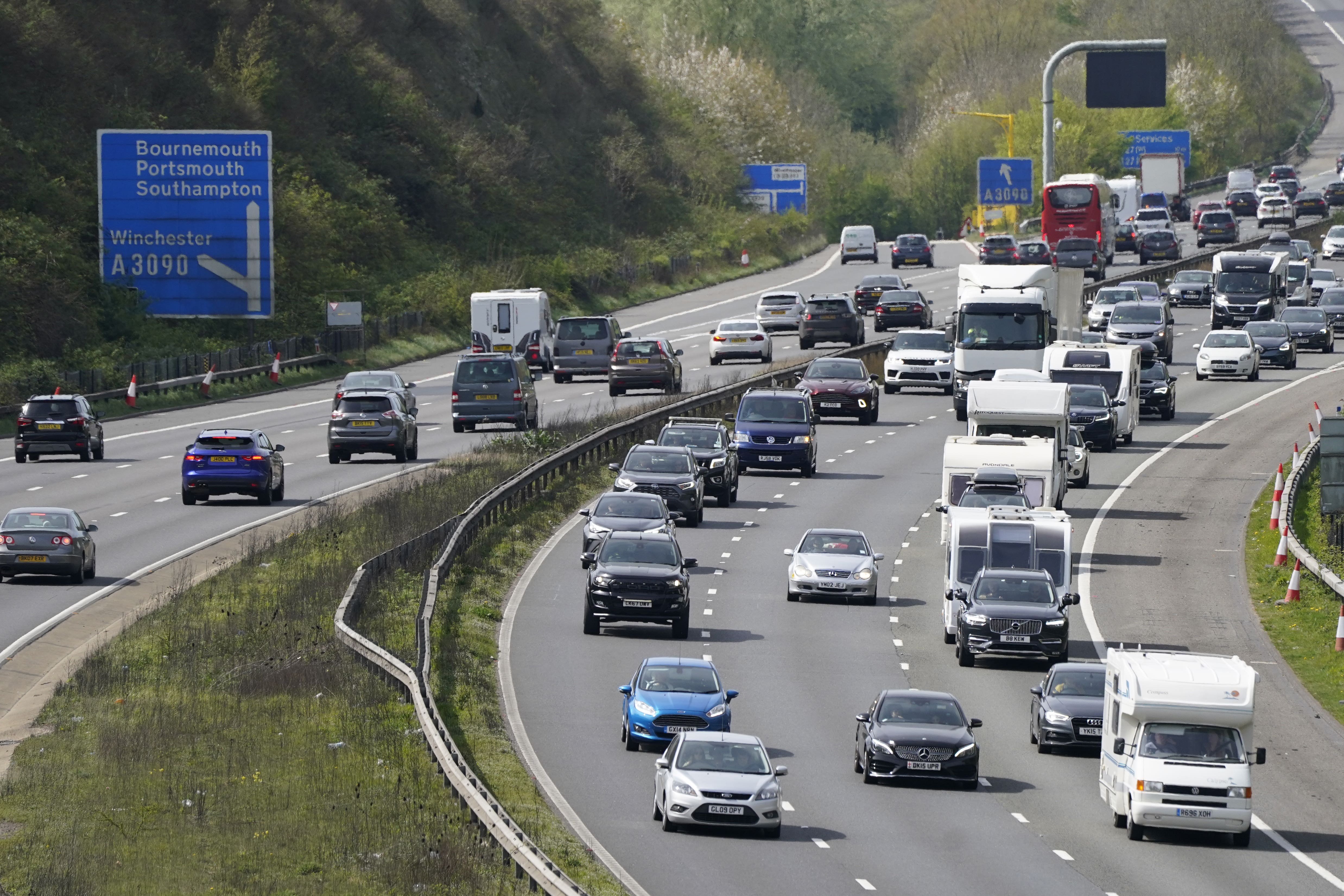Chancellor urged to impose pay-per-mile scheme on UK drivers
Public transport charity Campaign for Better Transport issued the plea, claiming it would have public support.

Your support helps us to tell the story
From reproductive rights to climate change to Big Tech, The Independent is on the ground when the story is developing. Whether it's investigating the financials of Elon Musk's pro-Trump PAC or producing our latest documentary, 'The A Word', which shines a light on the American women fighting for reproductive rights, we know how important it is to parse out the facts from the messaging.
At such a critical moment in US history, we need reporters on the ground. Your donation allows us to keep sending journalists to speak to both sides of the story.
The Independent is trusted by Americans across the entire political spectrum. And unlike many other quality news outlets, we choose not to lock Americans out of our reporting and analysis with paywalls. We believe quality journalism should be available to everyone, paid for by those who can afford it.
Your support makes all the difference.Chancellor Rachel Reeves is being urged to impose a pay-per-mile scheme on UK drivers to avoid a “black hole” from lost fuel duty revenue.
Public transport charity Campaign for Better Transport (CBT) issued the plea, claiming it would have public support.
It is proposing that drivers of zero emission vehicles (ZEVs), such as electric cars, should be charged based on how far they travel.
The new Chancellor faces a looming black hole
Under the plan, drivers with a ZEV before the implementation date would be exempt, incentivising the switch to electric motoring.
Duties levied on petrol, diesel and other fuels generate around £25 billion a year in revenue for the Treasury.
This figure is expected to dwindle as more drivers transition from traditionally-fuelled cars to ZEVs.
But successive governments have found the prospect of introducing per-mile charges – known as road pricing – to be too politically toxic.
CBT director of policy and campaigns Silviya Barrett said: “The new Chancellor faces a looming black hole. She can avoid it, in a way which is fair and which garners broad public support. But she should start now, as this issue will only get more pressing.
“It should be cheaper to drive a zero-emission vehicle than a more polluting vehicle, but it’s only fair that these drivers should pay a share, and a pay-as-you-drive model can achieve this.”
Ms Barrett wrote a letter to Ms Reeves stating that “ZEV drivers should fairly contribute towards vehicle taxation” and calling for a “simple charge” based on “regular odometer readings”.
She added: “We fully appreciate that such a change would be perceived as difficult and criticised by the opposition and by certain representative groups.
“However, our research demonstrated the general public supports such a move.”
CBT leads a forum consisting of 37 transport-related organisations, which it said would all “support a Treasury move on vehicle taxation”.
One member, motoring services company RAC, said a “replacement form of taxation needs to be introduced to avoid losing billions”.
It called for the new system to be “simple and fair to drivers of both conventional and electric vehicles”.
Another forum member, the Confederation of Passenger Transport, which represents bus and coach operators, said pay-as-you-go vehicle taxation could “help curb congestion”, making public transport “more attractive”.
Labour has committed to reverse then-prime minister Rishi Sunak’s decision in September last year to delay banning the sale of conventionally fuelled new cars from 2030 until 2035.
Ms Reeves will deliver her first budget on October 30.